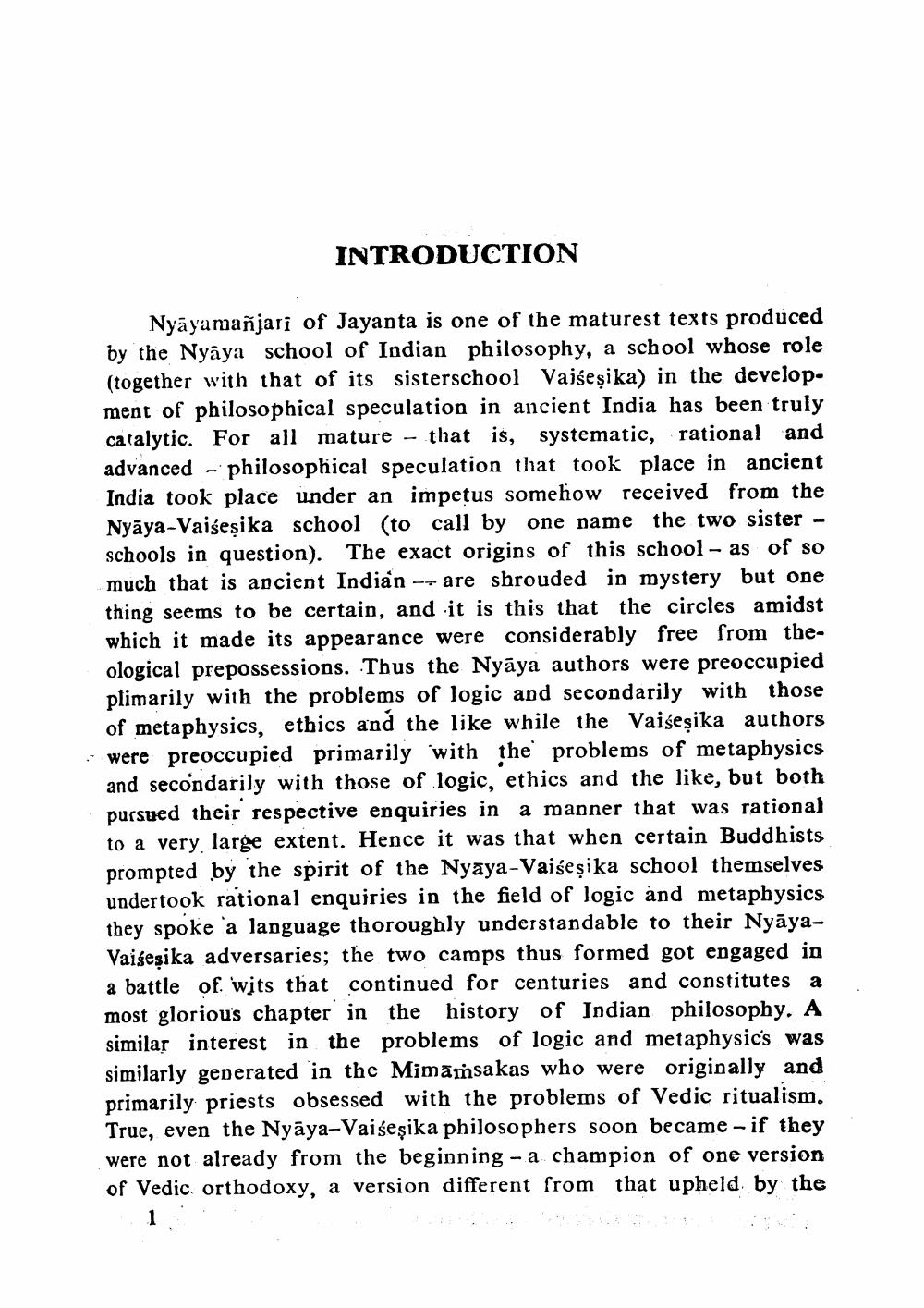________________
INTRODUCTION
Nyāyamañjari of Jayanta is one of the maturest texts produced by the Nyaya school of Indian philosophy, a school whose role (together with that of its sisterschool Vaiseșika) in the development of philosophical speculation in ancient India has been truly catalytic. For all mature - that is, systematic, rational and advanced - philosophical speculation that took place in ancient India took place under an impetus somehow received from the Nyāya-Vaiseșika school (to call by one name the two sister - schools in question). The exact origins of this school - as of so much that is ancient Indian -- are shrouded in mystery but one thing seems to be certain, and it is this that the circles amidst which it made its appearance were considerably free from theological prepossessions. Thus the Nyāya authors were preoccupied plimarily with the problems of logic and secondarily with those of metaphysics, ethics and the like while the Vaiseşika authors were preoccupied primarily with the problems of metaphysics and secondarily with those of logic, ethics and the like, but both pursued their respective enquiries in a manner that was rational to a very large extent. Hence it was that when certain Buddhists prompted by the spirit of the Nyaya-Vaiseșika school themselves undertook rational enquiries in the field of logic and metaphysics they spoke a language thoroughly understandable to their NyāyaVaiseșika adversaries; the two camps thus formed got engaged in a battle of wits that continued for centuries and constitutes a most glorious chapter in the history of Indian philosophy. A similar interest in the problems of logic and metaphysic's was similarly generated in the Mimāmsakas who were originally and primarily priests obsessed with the problems of Vedic ritualism. True, even the Nyāya-Vaiseșika philosophers soon became-if they were not already from the beginning - a champion of one version of Vedic orthodoxy, a version different from that upheld by the




